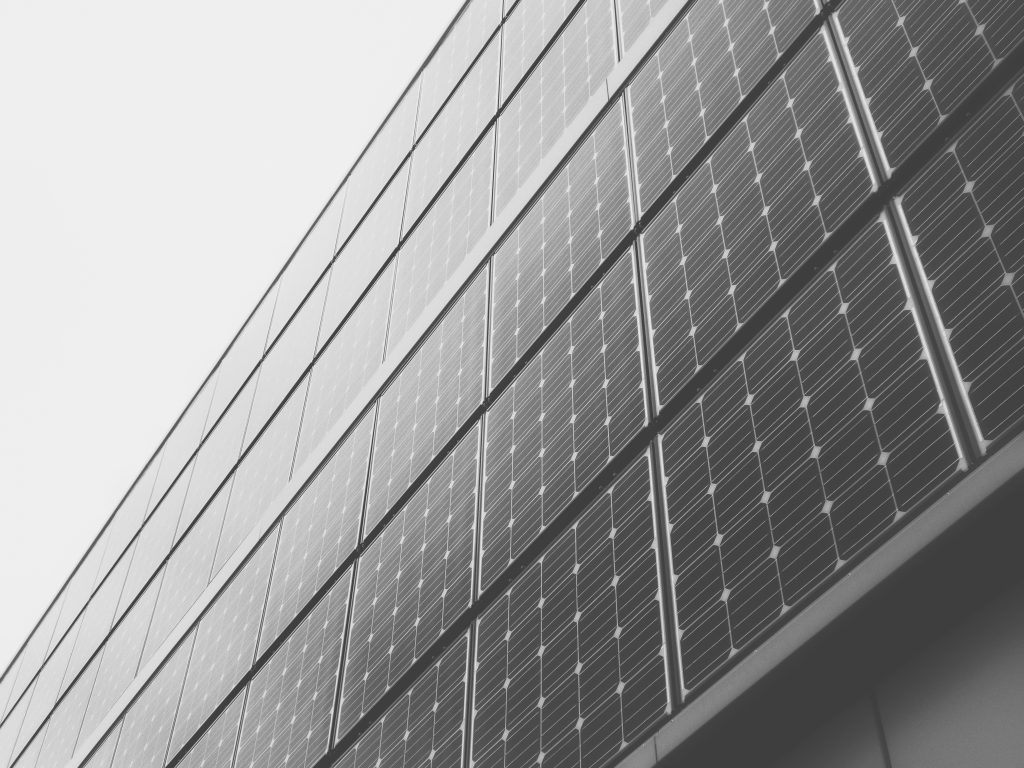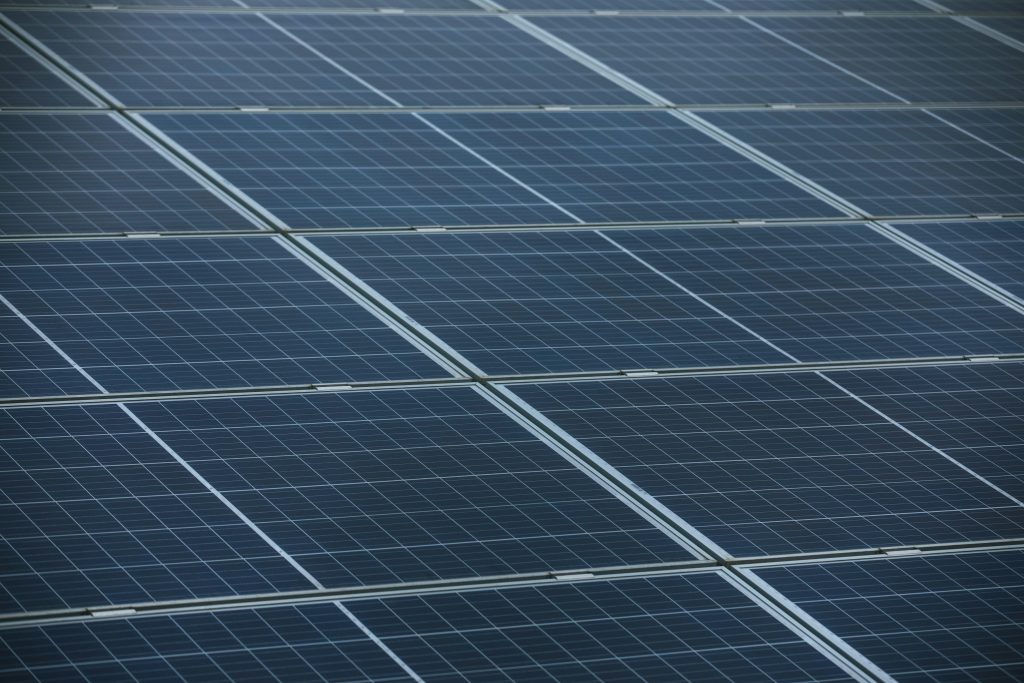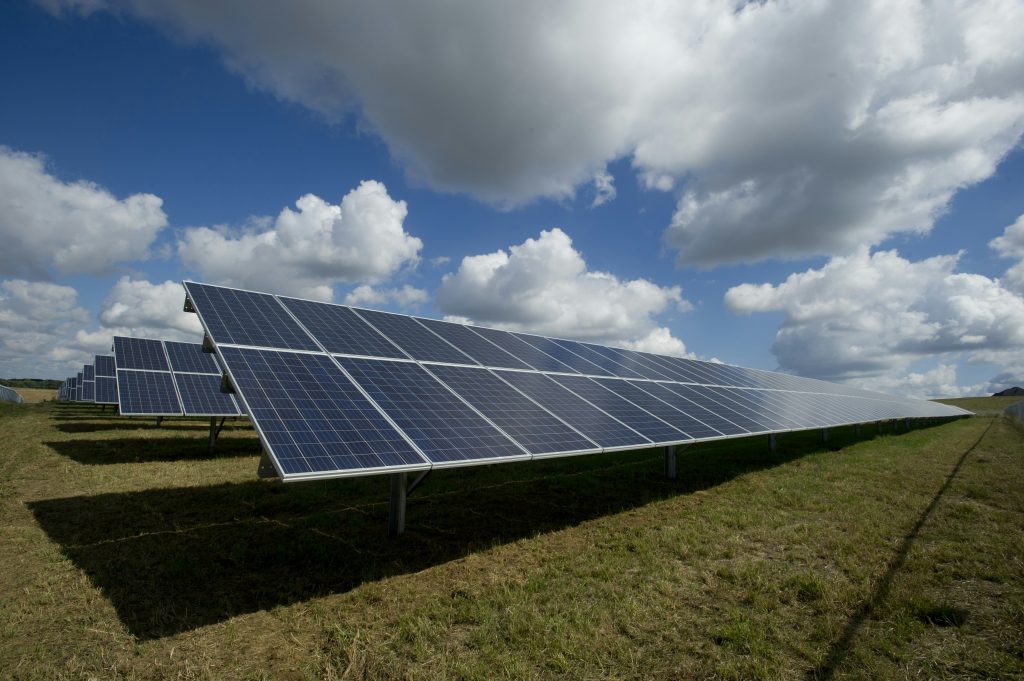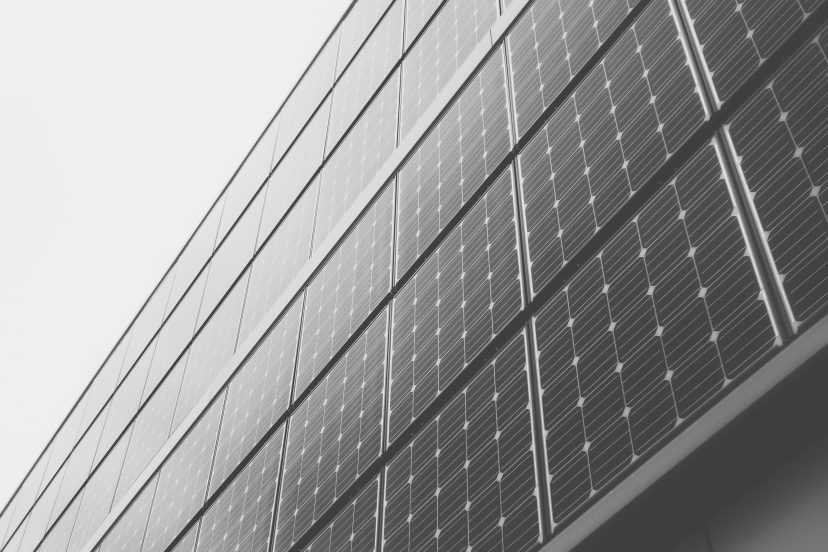How Long Do Solar Panels Take To Pay For Themselves
As an Amazon Associate, I earn from qualifying purchases, at no additional cost to you. Disclaimer
Hey there! Have you ever wondered how long it takes for those shiny solar panels on your neighbor’s roof to pay for themselves? Well, I’ve got some good news for you! In this article, we’ll explore the timeline of solar panel payback and discover just how long it takes for these eco-friendly devices to become a financial asset. So, buckle up and get ready to dive into the world of solar energy, because you’ll be pleasantly surprised by what you learn!

Understanding the Cost of Solar Panels
Initial investment requirement
When considering installing solar panels, one of the most important factors to take into account is the initial investment required. The cost of solar panels can vary depending on factors such as the size of your system, the brand and type of panels used, and any additional equipment needed for installation. It is important to research and obtain quotes from reliable solar providers to get an accurate estimate of the cost.
Cost per watt of solar panels
Another aspect of understanding the cost of solar panels is the cost per watt. This metric refers to the price you pay for each watt of solar power your system can generate. Generally, the cost per watt can range from $2 to $4, but this can vary depending on several factors, including the quality and efficiency of the panels. It is essential to consider the cost per watt when comparing different solar panel options and assessing the overall value of your investment.
Various types of solar panels and their costs
Solar panels come in various types, each with its own advantages and price range. The most common types include monocrystalline, polycrystalline, and thin-film solar panels. Monocrystalline panels are known for their high efficiency but come at a higher cost. Polycrystalline panels, while slightly less efficient, are more affordable. Thin-film panels are the least expensive option but have lower efficiency rates.
Calculating Solar Panel Efficiency
Factors affecting solar panel efficiency
solar panel efficiency refers to the ability of the panels to convert sunlight into electricity. Several factors can impact the efficiency of solar panels, including the type and quality of the materials used, the temperature, and the angle at which the panels are installed. Understanding these factors can help you determine the optimal efficiency rates for your specific location and needs.
Efficiency rates of different solar panel types
Different types of solar panels have varying efficiency rates. Monocrystalline panels tend to have the highest efficiency rates, typically ranging from 15% to 20%. Polycrystalline panels have slightly lower efficiency rates, generally falling between 13% to 16%. Thin-film panels have the lowest efficiency rates, typically ranging from 7% to 12%. When choosing solar panels, it is crucial to consider your energy needs and budget while also taking into account the efficiency rates of each panel type.
How efficiency impacts return on investment
The efficiency of solar panels can significantly impact the return on investment (ROI) you can expect from your solar system. Higher efficiency panels can generate more electricity with the same amount of sunlight, resulting in greater energy savings over time. While panels with higher efficiency rates may have a higher upfront cost, they can often provide a faster payback period and increased long-term financial benefits. It is essential to balance the upfront cost with the potential long-term savings when considering the efficiency of solar panels.
Determining Energy Consumption
Assessing your home’s energy use
To determine the appropriate size and capacity of your solar panel system, it is important to assess your home’s energy consumption. Start by reviewing your utility bills and understanding the kilowatt-hour (kWh) usage for different months of the year. Look for patterns in your energy consumption to identify peak and off-peak usage periods. This analysis will help you understand your energy needs and make informed decisions about the size of your solar panel system.
Understanding your utility bill
Your utility bill provides valuable information about your energy consumption and costs. Pay attention to the kilowatt-hour (kWh) usage and the corresponding charges. Understanding the rates, peak demand charges, and tiered pricing structures can help you estimate the potential savings achieved by using solar energy. It is crucial to review your utility bill in detail and consider how switching to solar power can impact your overall energy expenses.
Analyzing peak and off-peak usage
Analyzing your peak and off-peak usage is essential for optimizing the effectiveness of your solar panel system. By identifying peak usage times, you can determine the size and design of your solar system to match those peak demands efficiently. This can help reduce your reliance on the conventional grid during peak periods, leading to greater savings and decreased energy costs. Understanding your usage patterns allows you to tailor your solar investment to best meet your needs.
Solar Panel Lifespan
Average lifespan of solar panels
Solar panels are a long-lasting investment, with an average lifespan of 25 to 30 years. This lifespan may vary depending on the quality of the panels, the manufacturer, and the specific environmental conditions in which they are installed. With proper maintenance and care, solar panels can continue to produce electricity efficiently for several decades, ensuring a reliable and sustainable energy source for your home.
Warranty periods
When considering solar panels, it is crucial to review the warranty periods offered by the manufacturer. Most reputable solar panel manufacturers provide warranties that cover performance and product defects for a specific number of years. These warranties typically range from 10 to 25 years, with some manufacturers offering extended warranties. Understanding the warranty coverage is essential to protect your investment and ensure peace of mind.
Maintenance needs and their impact on lifespan
Solar panels generally require minimal maintenance. Regular inspections and cleaning are recommended to remove any dirt or debris that may accumulate on the surface, which can slightly impact the efficiency of the panels. Additionally, it is important to monitor the system for any potential issues or malfunctions. By promptly addressing any maintenance needs or repairs, you can maximize the lifespan and performance of your solar panel system.

Incentive Programs for Solar Energy
Federal tax credits
One significant incentive for investing in solar energy is the availability of federal tax credits. The federal government offers a solar investment tax credit (ITC), which allows homeowners to deduct a percentage of the cost of their solar panel system from their federal taxes. As of 2021, the ITC provides a 26% tax credit that can significantly reduce the overall cost of installing solar panels. Consulting with a tax professional can help you understand and take full advantage of these federal incentives.
State and local incentives
In addition to federal incentives, many states and local governments offer their incentives to promote the adoption of solar energy. These incentives can include cash rebates, property tax exemptions, sales tax exemptions, and grants. The availability and structure of these incentives can vary from state to state, so it’s important to research and understand the specific programs offered in your area. These state and local incentives can further reduce the upfront costs of installing solar panels.
Utility company rebates
Some utility companies also offer rebate programs to incentivize the use of solar energy. These programs vary by utility provider and can include cash incentives, feed-in tariffs, or net metering arrangements. Rebates offered by utility companies can significantly impact the financial viability of installing solar panels and reduce the payback period for your investment. Contacting your utility company to inquire about any available rebate programs is recommended.
How incentives affect payback period
The various incentives available for solar energy can have a significant impact on the payback period of your investment. By reducing the upfront costs or providing ongoing financial benefits, incentives can shorten the time it takes for your solar panel system to pay for itself. It is important to consider these incentives when evaluating the financial feasibility of installing solar panels and calculating the long-term savings you can achieve.
Installation and Maintenance Costs
Installation cost variables
The cost of installing solar panels can vary depending on several variables. Factors that can impact installation costs include the size and complexity of the system, the location, the type of roof, and any necessary upgrades to electrical systems. To obtain an accurate estimate of installation costs, it is advisable to get multiple quotes from reputable solar providers. Comparing quotes will help you understand the range of costs and select the option that best fits your budget and needs.
Routine maintenance costs
While solar panels generally require minimal maintenance, there are some routine costs to consider. These maintenance expenses can include annual inspections, cleaning, and replacing small components as needed. It is important to budget for these routine maintenance costs to ensure the longevity and optimal performance of your solar panel system. Regular maintenance will help maximize the return on your investment and extend the lifespan of your solar panels.
Unexpected repair costs
While solar panels are designed to be durable and long-lasting, there is a possibility of unexpected repairs being needed. These repairs can result from severe weather events, damage caused by animals, or electrical issues. It is important to factor in these potential repair costs when evaluating the financial viability of solar energy. Having a contingency plan or considering a suitable warranty can help mitigate unexpected repair expenses.
Insurance considerations
When installing solar panels, it is important to review your homeowners’ insurance policy to ensure appropriate coverage. Solar panels are considered valuable additions to your property, and it is essential to protect your investment in the event of damage or theft. Contacting your insurance provider to discuss coverage options for your solar panel system is recommended to ensure peace of mind and financial protection.

Calculating the Payback Period
Factors affecting payback period
The payback period refers to the time it takes for the savings from your solar panel system to equal or surpass the initial investment. Several factors can influence the payback period, including the cost of installation, available incentives, energy consumption, electricity rates, and the efficiency of the solar panels. Understanding these factors and how they interact will help you estimate the payback period and assess the financial viability of installing solar panels.
How to calculate solar payback period
Calculating the payback period for your solar panel system involves considering the upfront cost, ongoing energy savings, and any available incentives. Start by subtracting the total incentives received from the initial installation cost. Then, calculate the annual energy savings by multiplying your monthly energy bill savings by 12. Divide the adjusted installation cost by the annual energy savings to determine the approximate payback period in years. This calculation will give you a clearer understanding of the financial returns you can expect from your solar investment.
Average payback periods based on location and usage
The average payback periods for solar panel systems can vary depending on location and energy usage. Generally, residential solar panel systems have payback periods ranging from 6 to 10 years. However, factors such as high energy consumption, expensive electricity rates, and limited available incentives can extend the payback period. Conversely, locations with lower energy costs and substantial incentives can have shorter payback periods. Consulting with a solar professional and researching average payback periods in your area can provide a more accurate estimation for your specific circumstances.
Potential Savings From Solar Power
Electricity bill savings
One of the primary benefits of solar power is the potential for substantial electricity bill savings. By generating your electricity from the sun, you can significantly reduce or even eliminate your reliance on the conventional electrical grid. This can lead to dramatic reductions in your monthly electricity bills, providing long-term savings and increasing your disposable income. The amount of savings will depend on your energy consumption, the efficiency of your solar panel system, and the availability of incentives in your area.
Long-term financial benefits
Installing solar panels offers more than just immediate electricity bill savings. Over the lifetime of the panels, you can potentially benefit from long-term financial advantages. As electricity prices continue to rise, your solar panels can act as a hedge against inflation, providing stable energy costs for years to come. Additionally, once your solar panel system has paid for itself, you can enjoy free electricity and potentially generate income by selling excess energy back to the grid. These long-term financial benefits make solar power an attractive investment.
Increased property values
Another financial benefit of installing solar panels is the potential increase in property values. Solar panels are seen as desirable and environmentally-friendly additions to homes, leading to higher resale values in many cases. Studies have shown that homes with solar panels tend to sell faster and at a higher price compared to similar homes without solar energy systems. Installing solar panels not only allows you to save money but can also be a smart investment that adds value to your property.

Environmental Impact
Carbon footprint reduction
Choosing solar power contributes to a significant reduction in carbon footprint and greenhouse gas emissions. Solar energy is a clean and renewable source of power that produces zero carbon emissions during operation. By investing in solar panels, you are actively reducing your reliance on fossil fuels and helping combat climate change. The environmental impact of solar power is substantial, making it a responsible and eco-friendly energy choice.
Contribution to renewable energy goals
Investing in solar panels also contributes to the overall goal of achieving a more sustainable and renewable energy future. Solar power is a key component of transitioning towards a low-carbon economy. By generating your electricity from a renewable source, you are actively supporting the global shift away from fossil fuels and towards cleaner energy alternatives. Your investment in solar energy plays a vital role in driving positive change and building a more sustainable future for generations to come.
Other environmental benefits
In addition to reducing carbon emissions, solar power offers various other environmental benefits. Solar energy production requires significantly less water compared to traditional power generation methods. By reducing water usage, solar power helps conserve this precious resource, particularly in areas prone to drought or water scarcity. Solar panels also have a minimal impact on local ecosystems, with no noise pollution or harmful byproducts. Choosing solar power promotes a healthier and more sustainable environment for both people and wildlife.
Making an Informed Decision
Reviewing costs and savings
When considering solar panels, it is crucial to review the costs and savings associated with the investment. Calculate the upfront costs, ongoing maintenance expenses, and potential savings in electricity bills. Consider any available incentives, tax credits, and long-term financial benefits. By carefully evaluating these factors, you can make an informed decision about whether installing solar panels aligns with your financial goals and energy needs.
Understanding the time to payback
Understanding the time it takes for your solar panels to pay for themselves is an important factor in decision-making. Calculating the payback period allows you to assess the overall return on investment and evaluate the financial feasibility of installing solar panels. Consider the average payback periods based on your location and usage patterns. By understanding the time to payback, you can gauge the long-term value of your solar panel system.
Considering environmental impact
In addition to financial factors, take into account the environmental impact of solar power. Reflect on the carbon footprint reduction, contribution to renewable energy goals, and other environmental benefits associated with solar energy. By choosing solar power, you are taking a proactive step towards a more sustainable future for the planet. Considering the environmental impact helps align your values with your energy choices and promotes responsible and ethical decision-making.
Weighing pros and cons
Lastly, weigh the pros and cons of installing solar panels. Consider the financial advantages, long-term savings, and potential property value increases. Assess the environmental benefits and the positive impact on the planet. On the other hand, evaluate the upfront costs, ongoing maintenance expenses, and potential limitations. By carefully weighing the pros and cons, you can confidently make a decision that aligns with your values, goals, and overall well-being.
In conclusion, understanding the cost of solar panels involves considering the initial investment requirement, the cost per watt, and the various types of solar panels available. Calculating solar panel efficiency requires assessing the factors affecting efficiency, comparing efficiency rates of different panel types, and understanding how efficiency impacts the return on investment. Determining energy consumption involves assessing your home’s energy use, understanding your utility bill, and analyzing peak and off-peak usage. Considering the solar panel lifespan, incentive programs, installation and maintenance costs, and calculating the payback period are also crucial in making an informed decision. Finally, exploring the potential savings from solar power, the environmental impact, and weighing the pros and cons will help you determine whether solar panels are the right choice for your energy needs and values.


